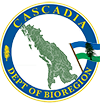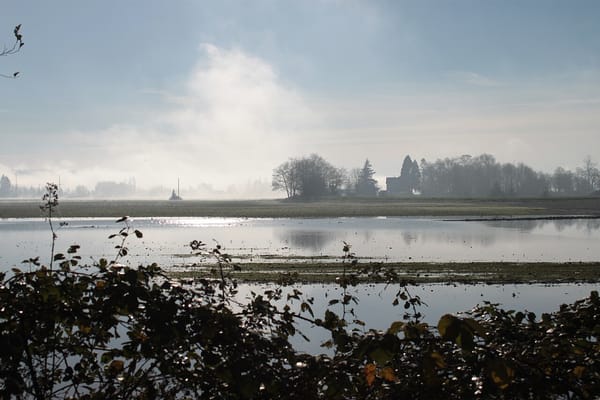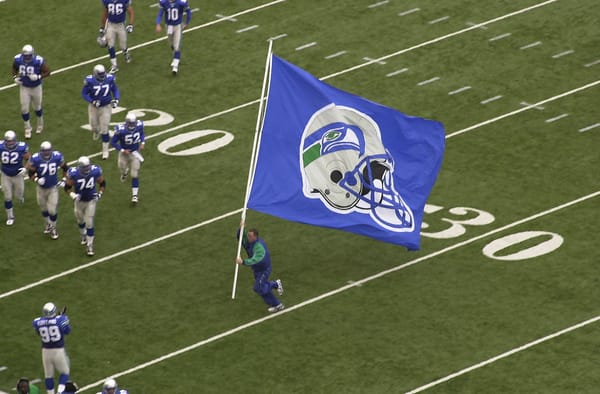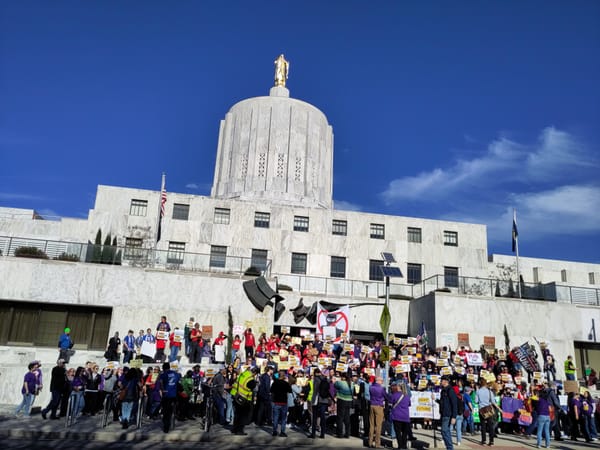Mutual aid is critical to Cascadia autonomy
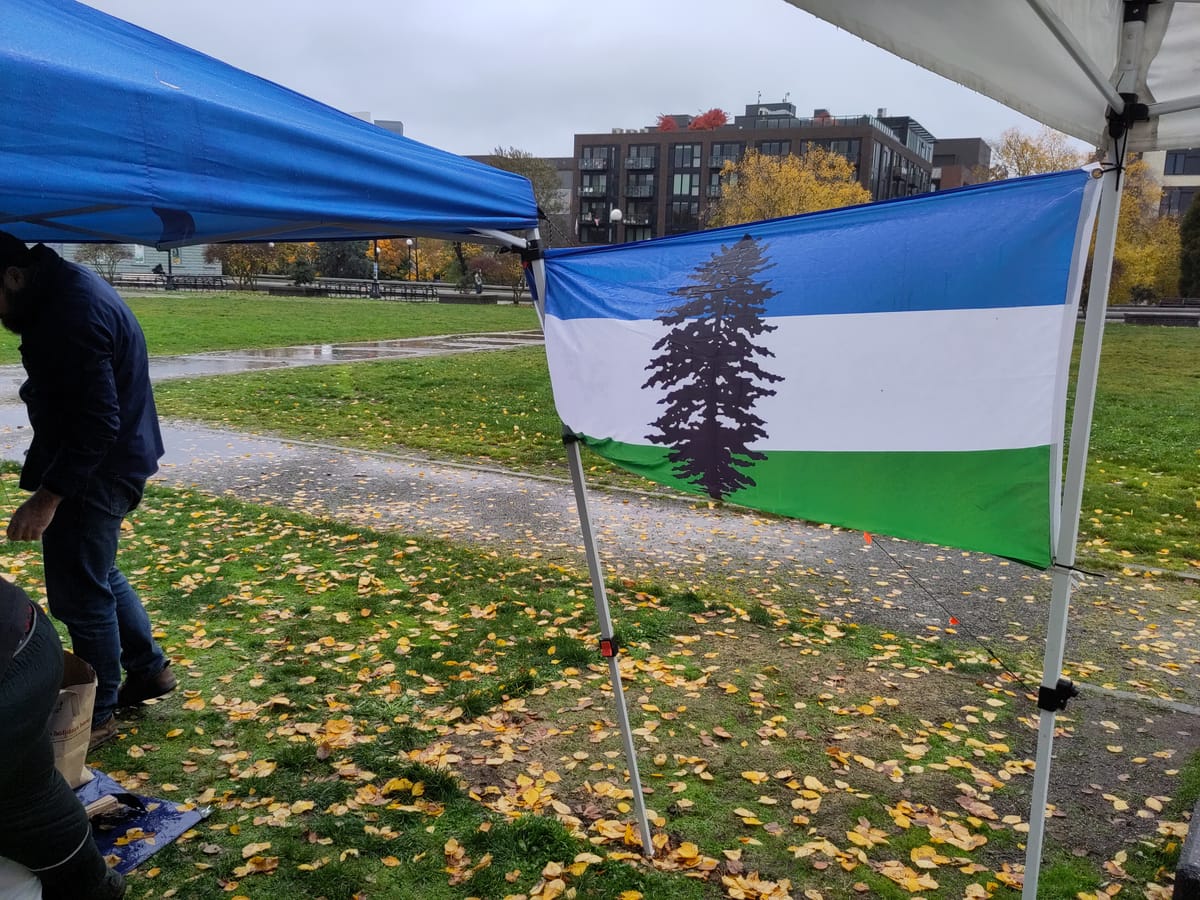
Last week, a group I helped create, Cascadia Democratic Action, organized a food drive in Seattle's Cal Anderson Park. Our goal was to help neighbors hurt by the Trump administration's refusal to fund SNAP benefits during the government shutdown. Food banks are already under enormous strain because of federal funding cuts and increased demand. The food drive was a concrete way for people to connect while helping those in need. I thought we'd set up a table and perhaps collect several boxes of food to send to Rainier Valley Food bank and the Jewish Family Service food bank.
Turns out, the idea of people going hungry struck a nerve in Seattle. Our SNAP to Action Food Drive went viral, and on Saturday people came from all over the city to donate more than 2,000 pounds – over a ton – of high-quality, non-perishable food, as well as diapers and feminine hygiene products. Reporters from KING-5, 13 FOX, and the Seattle Times all reported on the drive, and though most didn't talk about Cascadia Democratic Action and our goal of autonomy for the Pacific Northwest, we were grateful for the exposure.

Thank you Seattle, for proving that even as the federal government abandons its people and lets them go hungry, the people of Cascadia are willing to step up and help the most vulnerable among us.
Mutual aid is about taking care of one another. It has long been a foundation of revolutionary movements, including the slavery abolition movement, radical union organizing, immigrant solidarity groups, the Black Panthers, and queer communities' response to the AIDS crisis. Anarchist mutual aid collectives in Catalonia during the Spanish Civil War were an essential part of the fight against fascism.
Seattle University Law professor Dean Spade, a queer liberation activist and author of Mutual Aid: Building Solidarity During This Crisis (and the Next) – which is available free for download from the Anarchist Library – notes that:
“Mutual aid projects let us practice meeting our own and each other’s needs, based in shared commitments to dignity, care, and justice. They let us practice coordinating our actions together with the belief that all of us matter and that we should all get to participate in the solutions to our problems. They let us realize that we know best how to address the crises we face.”
Spade is critical of the traditional non-profit industry, which pits organizations against each other, competing for donations from the well-to-do. He notes that a charity-based approach to inequality often maintains the status quo. "The charity model encourages us to feel good about ourselves by “giving back.” Convincing us that we have done enough if we do a little volunteering or posting online is a great way to keep us in our place," he writes.

So, even while this food drive was a success – and certainly it's worth celebrating that over the past weekend Rainier Valley Food Bank received a record $17,000 in first-time donations – Cascadia's approach to mutual aid and true autonomy must be more long-term and inclusive of those affected.

Mutual aid will be absolutely critical as we build a movement toward Cascadia autonomy and independence, free from the federal government. We can and will take care of ourselves without meddling from the feds.
It will require all of us to step up and help our neighbors regularly. Here are some places to start...
Links to mutual aid groups in Portland and Seattle

The South Seattle Emerald has a great directory of mutual aid groups in Seattle (updated in Nov 2025) including Black Star Farmers, Seattle Food Not Bombs, and Stop the Sweeps.
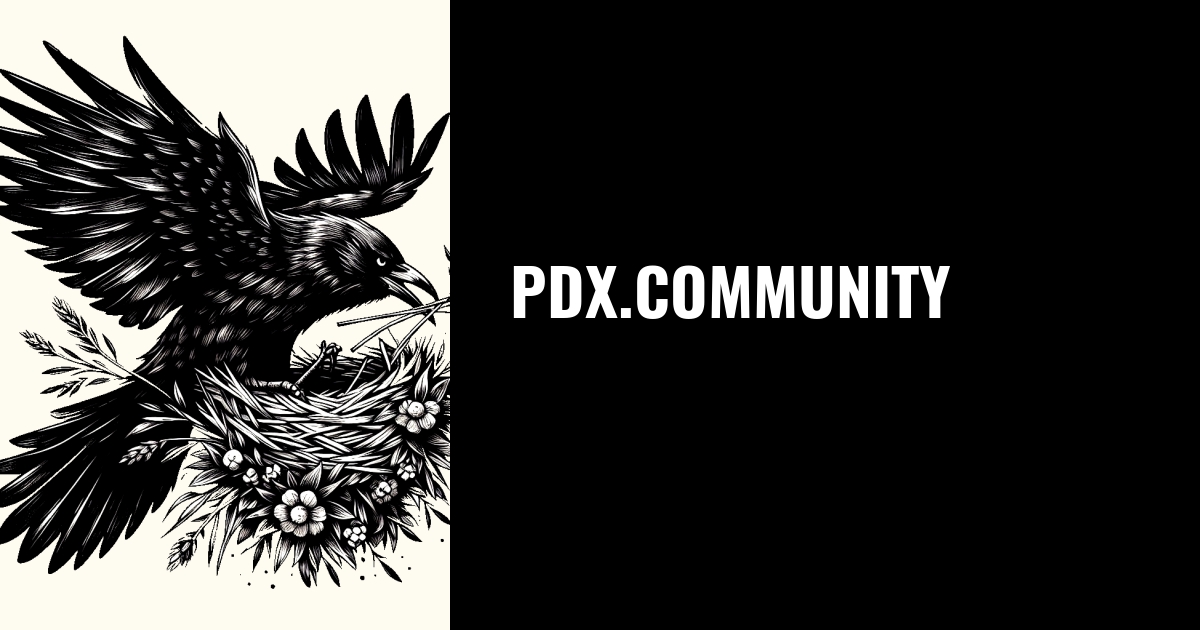
PDX Community has a fantastic an extensive directory of community care and mutual aid organization in Portland, including the Immigrant Mutual Aid Coalition, Milk Crate Kitchen, and PDX Free Fridge.

Cascadia Democratic Action is grassroots movement working for Cascadia autonomy that has no formal nonprofit structure. We're working on additional mutual aid projects, pushing legislation, and organizing non-violent resistance to the Trump regime, whether that means protests and rallies or helping create networks to monitor ICE activity in our region.

Other organizations have been doing great work to make Cascadia more resilient and help one another take care of each other. Cascadia Department of Bioregion (which is in the midst of a membership drive) works to build a stronger bioregion as well as supporting climate resiliency projects through Regenerate Cascadia. Cascadia Stack organizes "belonging circles" to help people in our region respond to the emotional toll of the climate crisis and to build personal resiliency.
Cascadians can help one another. I saw it this past weekend, and I know that the people in our region have the empathy to continue providing help to everyone who needs it.
--Andrew





